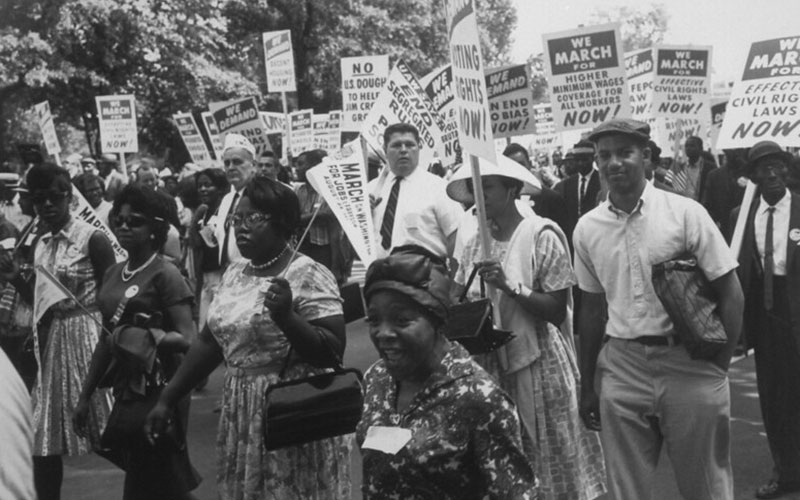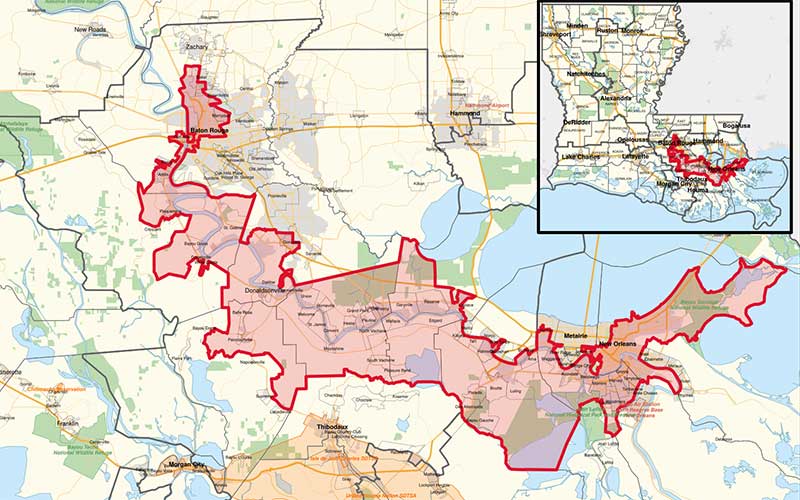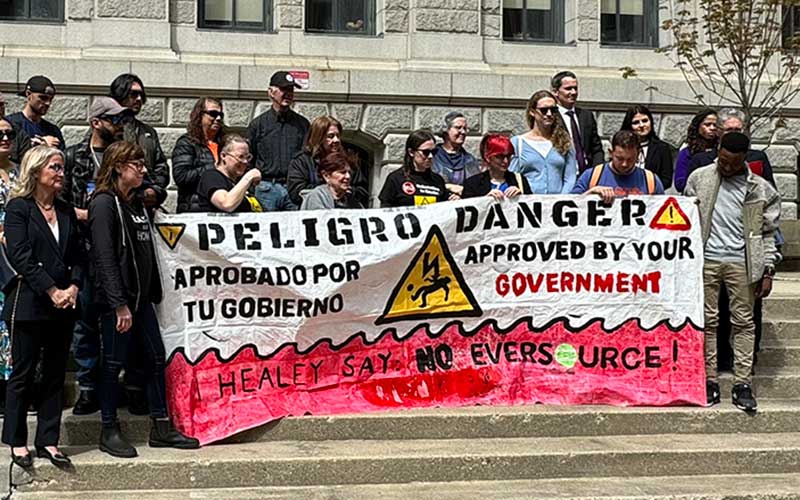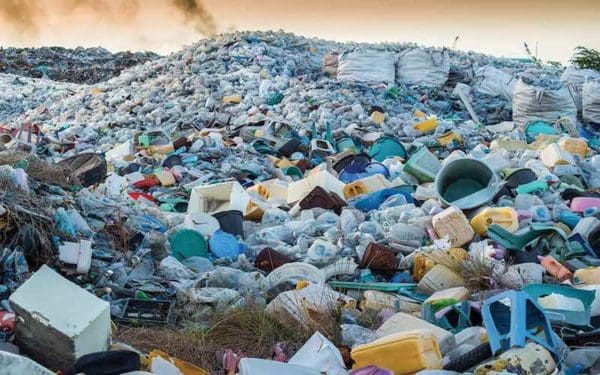
Title VI's influence expanded into environmental justice, giving communities a tool to challenge the placement of polluting facilities, advocate for clean air and water, and more. Credit: Civil Rights March via National Archive.
In Louisiana, an 85-mile stretch of land along the Mississippi River – between Baton Rouge and New Orleans – has gained the area the infamous nickname of ‘Cancer Alley.’ The area hosts over 150 chemical plants that release cancer-causing pollutants into the air. Here, predominantly Black communities strive to raise families under threat from exposure to some of the highest levels of toxic air pollutants in the U.S.
Title VI of the Civil Rights Act of 1964 aimed to combat these and other inequities, imposed by political decision-makers and corporations. At its core, it aimed to ensure no one faced discrimination – even indirectly – in enjoying the benefits of federally funded programs based on race, color, or national origin.

For decades, Title VI gave people in Louisiana a way to fight against the corporations that run these polluting facilities. But recently, a federal court ruled that, in Louisiana, the EPA can no longer step in when policies and practices that seem fair on the surface end up harming certain communities more than others. Title VI refers to those unfair harms as ‘disparate impacts.’
By striking the disparate impacts provision, the court set a path that could leave communities that rely on Title VI to fight against environmental injustices with no other safeguards.
And this rollback of protections in Louisiana could set a dangerous precedent in other states, allowing for sacrifice zones to be created across our country. It would open the floodgates for more pollution in some communities and give industries a free pass to ignore those most affected.
As Title VI turns 60, what should be an opportunity for celebration is now a call to protect a legacy under threat.
A Powerful Tool for Justice
From its early years, Title VI helped dismantle discriminatory education, healthcare, and housing practices. Soon, its influence expanded into environmental justice, giving communities a tool to challenge the placement of polluting facilities, advocate for clean air and water, and more.
Title VI’s focus on disparate impacts makes it a particularly powerful tool for justice. These protections have played a crucial role challenging policies that seem fair in theory but, in practice, harm certain communities more than others.

Here in New England, Title VI still plays a crucial role in protecting our communities. In East Boston, plans for an Eversource substation near a flood-prone, predominantly Latino neighborhood raised serious concerns for residents. The lack of proper translation services by the state left many Spanish-speaking residents out of critical discussions about potential risks. A proposed facility by Parallle Products in New Bedford has caused similar worries. The reason? Developers left immigrant communities and non-English-speaking residents out from critical discussions.
In such cases, advocates can leverage Title VI to help communities challenge infrastructure decisions receiving federal assistance that would significantly impact their health and safety. Regardless of the outcome, Title VI is critical in ensuring that, at minimum, all voices are heard, especially when their environment and health are at stake.
Title VI Under Threat
Despite its successes, Title VI is under attack. Efforts by the Trump administration – on the last day of his first term – aimed to roll back civil rights protections. Their tactic aimed to reduce federal funding for enforcement, limiting communities’ ability to lodge complaints, and narrowing the definition of discrimination. This threat that continues to loom aheads under project 2025. And federal agencies sometimes prioritize other agendas, neglecting Title VI investigations due to limited resources.
On top of that, attempts by developers to remove bureaucratic hurdles in the name of profit and efficiency are making it easier for projects to skip community input. These attempts could strip marginalized communities of their ability to influence decisions directly affecting their lives, undermining progress toward environmental justice.
The Best Gift: Strengthening Title VI and Expanding State-Level Protections
The best gift we can give at this birthday celebration is to not only protect Title VI from these recent threats but also strengthen and expand its reach. That is especially important as the effects of climate change ramp up. When hurricanes, heat waves, and wildfires hit, it’s often communities of color, immigrants, and non-English speaking residents who suffer the most.
Decades of discriminatory and racist practices left many of these populations with highways running through them, industrial sites in their backyards, and little protection in flood-zone areas. Take redlining, for instance, where banks and government agencies marked Black neighborhoods to deny them loans and investment, making their neighborhoods easy targets for developers with little regard for their health and well-being. Though such policies may be gone on paper, their damaging effects linger – and climate change magnifies these injustices
Strengthening protections now will help ensure every community has a voice and the power to shape a healthier, fairer environment.
Mobilizing for Justice: How We Can Take Action
Title VI remains one of our strongest tools for justice, but it requires our collective voice to stay that way. Let’s ask our elected officials to protect and expand these critical rights so every community has a fighting chance for a safer, healthier future. Let them know that the rollback of protections in places like Louisiana’s Cancer Alley is unacceptable and that every community deserves the right to clean air, safe water, and a healthy environment. Let them know that we want this 60th anniversary to be a moment of pride, not fear — a moment that marks continued progress, not the erosion of our rights.



